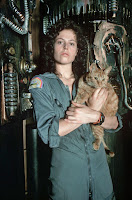Okay, I’ve fallen waaaaaay behind in ranty blog posts over the past two months, so let me take a few minutes and try to make it up to you
As it happens, I wanted to talk about redemption stories. You know, where our hero has done something awful in their past and is now seeking to balance the scales one way or another. Maybe by actively trying to make up for it or by punishing themselves for it.
Right up front, if I want to write about redemption a key thing is empathy. A good redemption story depends on me knowing how my readers will respond to various incidents and actions. If I don’t have a good sense how something will go over, it’ll be easy for my redemption tale to seem pointless, silly, confusing, melodramatic… or, y’know, all of the above.
And, as usual, none of this is ironclad, heavily researched and sourced literary theory that I rigorously defended for my thesis or anything like that. It’s just observations from many, many years of reading and watching stories. Your mileage may vary.
That said… a redemption tale could either be the main thrust of my story or it just part of a single character’s personal arc. Either way, I think my story has to hit a couple of key points. Not in an “introduce the first conflict by page 23,” way, but more in a general “let’s talk about the characters and the story” way. If I don’t have these points in mind, there’s a good chance that my “redemption” story may end up a little lacking
1) Does my character need to be redeemed?
This is one of those “obvious” things that I’ve seen a fair number of folks mess up. If I’m going to tell a redemption story about Wakko, he needs to have actually done something that requires redemption. It’s really cool that Wakko wants to sacrifice himself to make up for his past sins, but if he doesn’t have any past sins… well… That’s not redemption, it’s just a pointless sacrifice. Wakko needs to have something in his past (or do something very early in my story) for which some form of redemption is required. For this post, let’s call it his key event.

This is my first big empathy moment as a writer. If I can’t predict what actions (or lack of actions) my audience will see as needing redemption, my story can get silly pretty quick. There are some things—even things we’d all agree are bad things—that just don’t tip the scales into that “I need redemption for this” territory. Accidentally kicking my cat is bad, but it’s probably not worth a novel of me trying to make up for it Wakko should not be going on a ten year penitent crusade around the world as penance for putting a red sock in the wash (unless comedy is my goal). If he’s really guilt-ridden about that nickel he picked up off the sidewalk when he was six… again, I’d better be writing a comedy.
Also, please note I’ve been referring to the key event as something in the past. That’s going to come up again.
So what was Wakko’s key event? Did he knowingly write a bad check? Peek in someone’s bedroom window when he was fourteen? Sabotage a relationship? Steal a car? Blackmail someone? Maybe… kill someone?
This leads nicely into…
2) Can my character be redeemed?
Somewhat related to the first point. Much like the key event needs to cross a certain threshold to be redemption-worthy, I think we can all agree that there’s another threshold where it’s going to be a lot harder for someone to balance the scales. Maybe impossible. That’s true in pretty much any society, past, present, or future. Sometimes people do things that are beyond redemption. It’s really tough to imagine anything a serial child rapist could do to make up for what they’ve done.
I’m sure some of you immediately thought “well, they could die,” but that’s not redemption, is it? It’s just death. Possibly revenge, but that’s a whole different animal.
So when I’m writing Wakko’s redemption tale, I need to really think about what he’s done. Again, this is going to be an empathy issue. Will my readers think his key event is a redeemable act? Or is it so extreme nothing could ever make up for it.
3) Does my character want to be redeemed?
This may sound obvious, but I can’t force redemption on someone. That’s not how it works, despite everything the Inquisition tried to teach us. Wakko needs to want it.
And… maybe he doesn’t. Maybe he doesn’t feel like he did anything wrong. Perhaps he paid his fine or wrote his apology letter or served his time and considers the matter closed. Or it could be he knows it was wrong and just doesn’t care. Maybe he feels he’s beyond your petty ideas of right and wrong. Some people are like that. If that’s the kind of character I’ve written Wakko as, it’s going to be tough to do a convincing redemption story about him.
4) Why hasn’t my character done it before?
Okay, for this one, I want to toss out what I personally think is a pretty solid rule of thumb… Feel free to agree or disagree down below.
In a good redemption story, a notable amount of time needs to pass between the key event and the redemption for that event.
Y’see, Timmy, in my opinion one of the main elements of redemption (from a story point of view) is guilt. If I don’t feel guilty about the key event, why would I want redemption?
With that in mind, if I’m taking care of things immediately after the key event, this isn’t so much redemption as it is… well, cleaning up. Wakko may feel awful about having to clean up the mess he made, but does he really feel guilty? If I hit someone with my car, it’s the difference between calling 911 and sitting with them until the ambulance comes… or switching my headlights off and speeding away. I may feel bad in both situations, but they’re two very different situations.
So what made Wakko run from his key event? Why didn’t he clean up his mess right then? What’s kept him from admitting it or doing anything about it until now? Denial? Fear?
And this one leads nicely to a sort of two in one, Watsonian-Doylistic point…
5A) Why is my character doing it now?
If I accept that Wakko’s tried to hide that key event for weeks or months or years… why is he looking for redemption now? What’s changed for him as a character that he’s decided to acknowledge this and make amends, starting today? What’s his (and I hate myself for saying this) inciting incident?
This is yet another empathy moment for me, the writer, because this is a big decision for any character. It’s a major change of course. They’re going against what they’ve done up until this point in their lives. If this isn’t a believable change of heart, my whole story could fall apart.
5B) Why is my character doing it now?
Looking at this as the writer, from a story point of view, why is this happening now? Odds are Wakko’s going to start thinking about redemption in this story, because I write about active characters who actually do things. So why have I included this? Am I just looking to give him some flavor and round him out a bit as a person? Is it the main plot of my whole novel? No matter why I’m doing it, this decision and the repercussions from it need to fit into the structure of my story and into Wakko’s arc as a character.

6) Does it balance the scales?
At the end of the day, every redemption story comes down to this. Has Wakko made up for what he did? Does he believe he did? Do other character think things are even now? Are my readers going to think he’s redeemed himself, or is it going to come across a little thin or forced?
I mentioned death up above—well, you thought about it, I mentioned it—so it’s probably worth talking about that. A lot of folks try to use death as the ultimate balancing agent. A life for a life, redemption achieved, and so on. I mean, sure, Wakko robbed, raped, and murdered his way across the country, leaving hundreds of people physically and/ or emotionally scarred, but in the end he died saving that little kid from getting hit by a bus And that makes it all okay, right?
No, of course it doesn’t. In fact, if not handled just right, death can come across as cowardice or a “he got off easy” situation. It can even look like laziness or a cop-out on the writer’s part. I mean, I don’t have to deal with all these complex emotions and repercussions if Wakko just gets a bus in the face. But it still counts as a strong resolution, right?
Right?
And there you have it. This is the kind of stuff I think about when I’m trying to do a redemption arc story. And if I don’t have good answers for most of these points, well, maybe I need to look again at how I’ve set up my story. Or my character.
Because there’s a decent chance they’re not on the road to redemption.
Next time I’d like to say something about said
Until then, go write.






